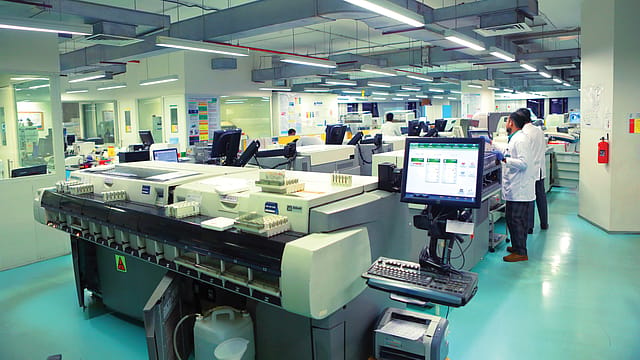Laboratory tests will cost less as GST cut from 12% to 5% for the diagnostics sector
ADVERTISEMENT

The government’s decision to reduce GST on diagnostic kits, reagents and a wide range of medical technology items from 12% to 5% will bring down the cost of laboratory diagnostic tests.
"By easing costs and improving affordability, the measure will enhance access to quality healthcare services, support early disease detection, and bring greater consistency by standardising GST rates across preventive, curative and rehabilitative care," said Ameera Shah, president, NATHEALTH (Healthcare Federation of India) and promoter and executive chairperson, Metropolis Healthcare.
According to various estimates, the Indian diagnostics market was valued at $9.8 billion in 2024 and is expected to grow at a CAGR of 11.21% during 2025-2033. The diagnostics testing market was valued at $11.38 billion in 2024, and the diagnostic imaging equipment market was estimated at $2.06 billion, with projections to reach $3.01 billion by 2030.
This reform is in line with the industry's long-standing recommendations for a more enabling indirect tax framework in the healthcare sector, one that acknowledges the critical role of preventive health and supporting medical technology in strengthening healthcare delivery. By easing costs and improving affordability, the measure will enhance access to quality healthcare services, support early disease detection, and bring greater consistency by standardising GST rates across preventive, curative and rehabilitative care, said Shah.
January 2026
Netflix, which has been in India for a decade, has successfully struck a balance between high-class premium content and pricing that attracts a range of customers. Find out how the U.S. streaming giant evolved in India, plus an exclusive interview with CEO Ted Sarandos. Also read about the Best Investments for 2026, and how rising growth and easing inflation will come in handy for finance minister Nirmala Sitharaman as she prepares Budget 2026.
The industry also welcomed the reduction of GST slabs on retail health products such as health insurance, glucometers and corrective spectacles, which will make essential healthcare services and products more affordable.
The decision to reduce GST from 12% to 5% on a wide range of medical products, including diagnostic kits, reagents, surgical apparatus and other critical MedTech products, will directly benefit patients by lowering treatment costs, improving affordability, and expanding access to essential medical technologies, said Himanshu Baid, managing director, Poly Medicure.
